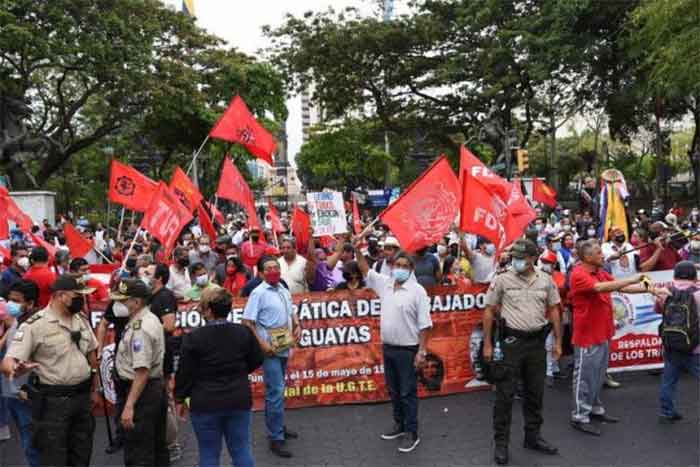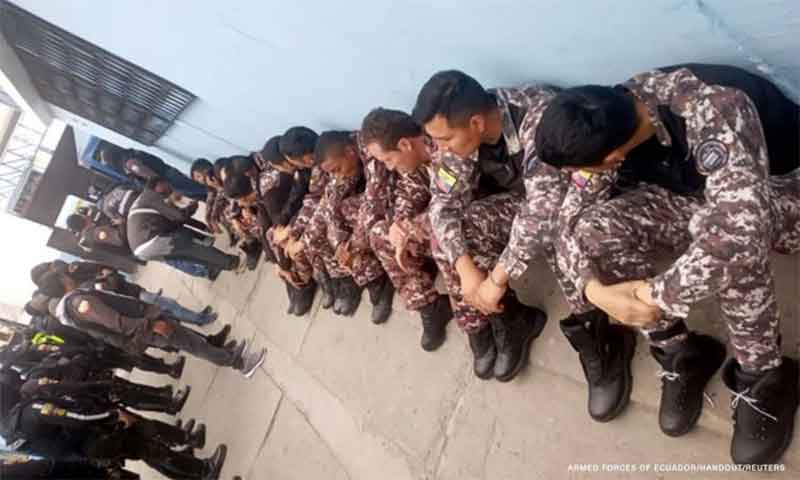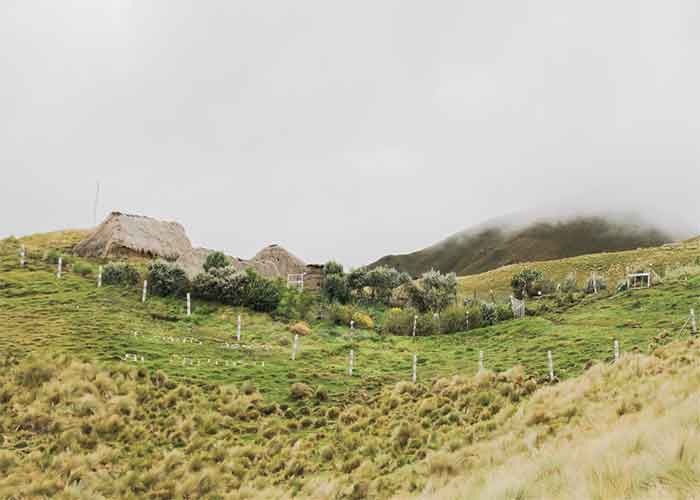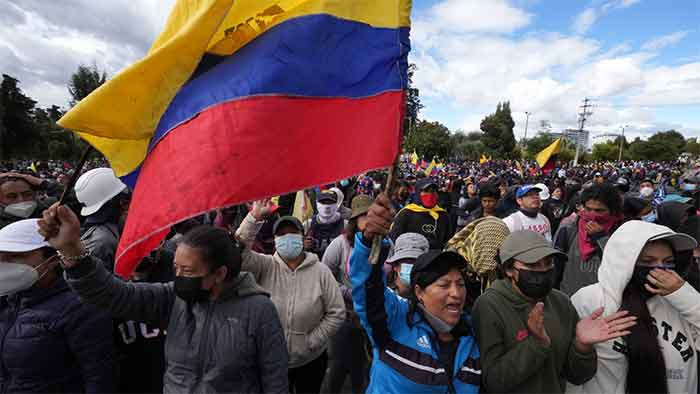
Ecuador’s President Guillermo Lasso on Wednesday called for dialogue following a second day of demonstrations by indigenous and social groups against gasoline price rises. The President said his government would keep security forces on highways to maintain order.
Media reports said:
Thousands of demonstrators marched on Tuesday in rejection of Lasso’s increase of the price of gasoline extra, a cheaper gasoline that is Ecuador’s most-used fuel, to a fixed $2.55 a gallon, and diesel to $1.90 a gallon.
Lasso, a conservative ex-banker who took office in May, was under pressure from unions and others to freeze incremental gasoline price increases begun by his predecessor last year.
Marchers argue the increased cost falls unfairly on regular citizens already struggling economically because of the COVID-19 pandemic.
“I call once more for dialogue, for consensus, for thinking of the good of the country and not of personal, party or union interests,” Lasso said during a military ceremony.
Road blockades set up ahead of Tuesday’s protests were continuing on Wednesday, including a barricade of earth and trees on one of capital Quito’s access roads.
Other roads in the country’s center and south were also closed, and transportation in the Amazon region was reportedly delayed by closures.
The Ecuador Confederation of Indigenous Nations (CONAIE) said on Twitter that protests would take place around the country. The CONAIE posted video of one demonstration in Tungurahua province.
Police were being deployed to clear some blockades, footage on local media showed.
“If tomorrow the challenges remain we will maintain the control by police in the cities, plazas and countryside of Ecuador,” Lasso said.
At least eight police officers were injured during Tuesday’s demonstrations and 37 people were arrested for blocking roads, the government said. CONAIE said demonstrators had also been hurt but did not give a figure.
On Wednesday, the CONAIE continued to hold protests against the increase in fuel prices.
The Indigenous organization presented seven demands to end the nationwide protests. Along with the reduction of fuel prices, it demands the release of the citizens detained during the protests.
The CONAIE also denounced the presence of police and military personnel in Indigenous territories to intimidate the people.
During the protests, a large group of people marched towards the Presidential palace where riot police confronted them.
In the capital city, police forces fired tear gas at demonstrators at the Santo Domingo square. At least 27 protesters were detained and many more resulted injured.
On Wednesday, roads in at least 10 cities remain blocked with burning tires or metal debris.
After similar protests in September, President Lasso and CONAIE leaders met and negotiated a possible solution to the fuel price issue. However, the dialogue ceased on Oct. 4.
In Oct. 2019, then-President Lenin Moreno implemented austerity measures, eliminated fuel subsidies, and increased the price of gasoline. In response to these policies, social organizations carried out a 10-day nationwide protest that revealed the discontent of Ecuadorians. Despite the existence of this precedent, Lasso decided to continue with the monthly increase in fuel prices.
On Monday, Lasso declared a 60-day state of emergency allegedly to stop crime and violence attributed to drug traffickers.
Workers, farmers, and students have condemned his move as an attempt to quell popular demonstrations.
Earlier reports said:
Ecuador’s Workers United Front (FUT) and the CONAIE urged citizens to take to the streets on Tuesday to reject President Lasso’s economic reforms, which increased fuel prices by 10 percent in less than ten days.
“On several occasions, social leaders have spoken with Lasso to seek consensus on economic matters. Since we have not achieved any results, we must exercise our right to peaceful protest,” the CONAIE President Leonidas Iza stated.
On Friday, Lasso repealed three decrees whereby President Lenin Moreno (2017-2021) allowed fuel prices to increase monthly until they reached international prices. However, he fixed regular gasoline’s price at US$2.55 and the diesel’s cost at US$1.90, which far exceeds current world market prices.
“Oil is indispensable in all productive and commercial activities. An increase in its cost makes the price of all products more expensive,” Iza warned and urged Lasso to set prices at US$1.50 for diesel and US$2 for regular gasoline.
This protest, which is likely to be the largest anti-government demonstration since Lasso took office in May, occurs amid an increase in the paramilitary gangs’ violence, which results from their territorial disputes and power wars.
Although Lasso declared a state of emergency decree to increase military presence in the streets, the gangs’ violence against the civil population has not ceased. On Friday, for instance, Olympic athlete Alex Quiñonez and his friend Jojairo Arcalla were shot dead in the Colinas de la Florida town in Guayaquil City.
“Lasso does not listen, does not dialogue, and exacerbates confrontations with a military presence that fails to succeed in intimidating the gangs,” Iza warned and assured that anti-government protests will carry on until Lasso meets the citizens’ demands.













































